As a homeowner the act of choosing the right boiler and the installation process can become overwhelming. This guide will provide you with five key points to keep in mind when buying and getting a boiler installed, providing you with confidence in your next boiler installation.
Before undertaking any work, please speak to a qualified engineer. Gas and LPG boilers must be installed, regularly serviced and safety checked every year by a suitably qualified Gas Safe registered engineer.
You should check your engineer is qualified to work on your property type, as well as qualified to work on the individual appliance. Please note, this is an introductory guide and is not a definitive source of legal information.
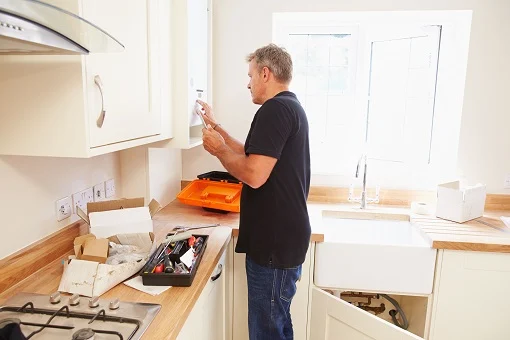
Ensuring You Have The Right Type Of Boiler For Your Property
There is an astounding amount of options when choosing a suitable boiler for your property; everything from the type of system you want installed, to the fuel you want to use. It’s worth spending some time ensuring you’re installing the suitable boiler. Here’s a quick break down on the different systems we supply at City Plumbing, as well as the different fuel types each boiler needs:
- Only heats the water used, ensuring minimal heat loss and as little fuel waste as possible
- Combi boilers save space as they don’t need either a hot or cold water tank. This makes them suitable for smaller properties with limited space
- If you use more than one tap at a time it could reduce the flow of hot water
- Water may take a few seconds to heat up, so not instantaneous
System Boilers:
- Great for properties with high hot water demand, making them ideal for a larger household
- Water provided directly from the mains ensures a higher water pressure
- System boilers are compatible with solar thermal, providing further options if you want to be extra environmentally conscious
- As there is a need for a hot water tank, this can take up further space within the property
- The amount of hot water you can use is dictated by the tank size you install
- Hot water isn’t instant. If the tank is used up and empty then it needs to fill itself back up and reheat before it can be used again
Heat Only Boilers:
- Heat only boilers work even if the mains pressure is low
- They provide hot water even if multiple sources are using it
- They are simple in their design, making them easy to maintains
- They provide low pressure for both showers and taps
- Further space is required for both hot and cold water tank making them unsuitable for smaller properties
- There can be sufficient heat loss through the hot water tank if they aren’t being used
It isn’t just the type of system that needs to be considered, but the fuel type too. This is determined by where the property is located and therefore what is available, as well as your personal preference. Each have their own specific pros and cons:
Gas is the most widely used fuel in the UK and is provided via a gas mains connection. This removes the need for a separate fuel tank and as such is more suited for the majority of properties within the UK. Gas boilers must be installed by a Gas Safe Registered engineer.
These are suitable for properties without a reliable gas source. Oil is a more efficient fuel compared to gas but is slightly slower to provide hot water. Oil boilers also need periodic maintenance to ensure it safely runs. To complete any work on an oil fired boiler you should find an engineer registered with one of the relevant Competent Persons Scheme.
LPG boilers require separate external storage, either a large tank within the grounds or a smaller tank storage connected to the house, so sufficient space is required. LPG is cheaper than oil and provides cleaner fuel emissions. However, the fuel can be more expensive and due to the stored nature needs to be ordered well in advance of running out. LPG boilers must be installed by a Gas Safe Registered engineer.
Boilers that run off the mains electric tend to be smaller, compact systems that can run much quieter than a fuel filled boiler. No flue or pipelines need to be fed into them so there is much more flexibility in where the boiler can be situated. Typically though, the smaller boilers can struggle to heat larger properties and the direct heating boilers generally have higher costs as they’re being used during peak electricity cost hours. To complete any work on an electric boiler you should find an engineer registered with one of the relevant Competent Persons Scheme.
FAQs About Boiler Maintenance and System Health
1. Where can homeowners find the pressure gauge and filling loop?
The Pressure Gauge: Usually located on the boiler's front control panel. It is often a circular dial with a needle pointing to a number (usually between 1 and 2 bars) or a digital display.
The Filling Loop: This is typically found underneath the boiler. It looks like a flexible silver (braided) hose with two small valves (tap handles) at either end. In some modern "integrated" systems, the filling loop is a built-in lever or a blue key that slides into the bottom of the unit.
2. Who is responsible for maintaining the pressure?
The homeowner (or the tenant, depending on the rental agreement) is generally responsible for monitoring and topping up the water pressure. Topping up the pressure via the filling loop is considered a basic maintenance task that does not require a Gas Safe engineer. However, if the pressure drops frequently (e.g., once a week), that indicates a leak or a failing expansion vessel, at which point a professional engineer must be called to investigate.
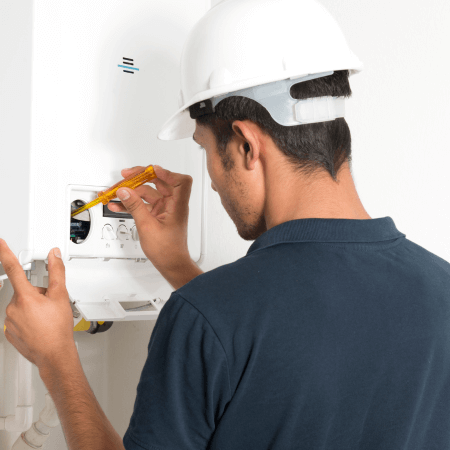
3. When should a homeowner consider a power flush?
A power flush is a deep clean of your central heating system using high-velocity water and chemicals. You should consider one if you notice the following "symptoms" of sludge buildup:
Cold Spots: The bottom of your radiators remains cold while the top remains hot. Slow Warm-up: The house takes significantly longer to heat up than it used to.
Noisy Boiler: You hear "kettling" (banging or whistling sounds) coming from the boiler unit.
Discoloured Water: If you bleed a radiator and the water is black or brown like thin ink.
Frequent Pump Failures: Sludge is abrasive and can burn out the internal pump.
Note: A power flush is almost always recommended (and often required by manufacturers) when installing a new boiler to prevent old debris from damaging the new heat exchanger.
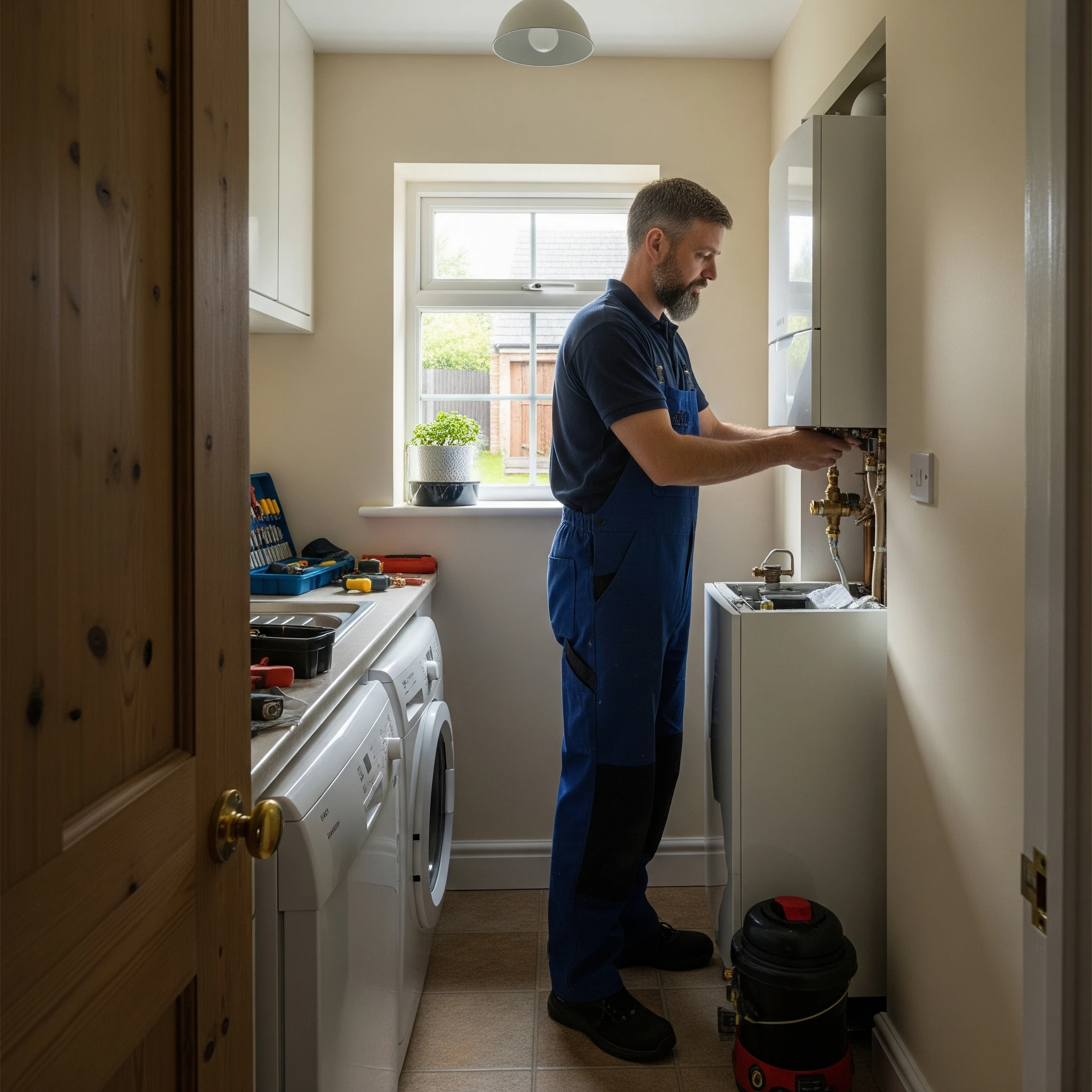
The Boiler Installation Needs To Be In A Suitable Location
It isn’t just the type of boiler that needs consideration, but where it’s being installed. This does depend slightly on the type of boiler, as well as what you personally want, but providing a suitable location makes it easier to maintain and run in an optimal manner.
With conventional boiler installation, it is important to consider where the flue will exit, but also how to hide away any unsightly pipes. If the boiler is small enough it can simply be hidden away in a cupboard, or alternatively can be placed within a garage to hide it away completely.
When installing an LPG boiler what you really need to consider is where, or if, you can install a large LPG tank. There are strict rules as to where you can place them. For example, they have to be placed at minimum 3m from any building and cannot be sited directly underneath electrical power cables.
The good news is, they can be installed both above and below ground and you can install smaller canisters if a larger version isn’t practical, although this would require more frequent re-stocking.
A boiler shouldn’t just be installed in the easiest point, it needs to be planned out to provide the cleanest and most simple system possible. Electric boilers are easier to hide away but considerations still need to be made to plan out the pipe routes.
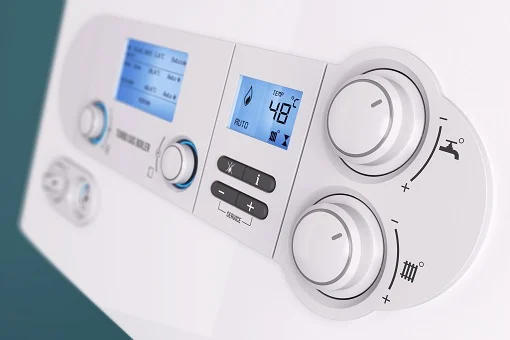
Balancing A Central Heating System
It’s an easy step to miss, but it’s always worth asking your installer to re-balance a heating system when a new boiler has been installed. A symptom of this is when certain radiators within a property don’t heat up properly, leaving them cold. Complaints regarding the system not heating up adequately are one of the most common post installation issues installers face and balancing provides a simple way of providing consistent heat throughout the property without having to change any components.
Radiator thermometers can be used to help test the system. Also known as differential thermometers, they simply clip to radiator pipes and measure the difference in temperatures between them.
Balancing a system can at times feel quite labour intensive, but it is a necessary step to ensure the system works to its full potential.
Boiler Not Keeping Pressure
If the boiler keeps switching itself off, or not firing up properly, that could be due to low water pressure. There are a number of causes for low pressure, including any leaks in a system, or a faulty pressure release valve, but a low pressure system means no hot water or heat will travel through the system.
The recommended pressure for a central heating system is around 1.3 bars, although anything in the 1-3 bar range will usually mean the boiler is operational. If the pressure is too high then the radiators need bleeding. If it is too low you can simply add pressure into the system via the filling loop.
Of course, this could also be a pressure issue coming into the system and not something that can be changed so quickly. If it is an incoming issue it’ll likely be a task for the local council to check out.
If you think your boiler is not maintaining pressure, contact a qualified engineer to have a look at it for you.
Boiler Control Issues
There are two potential issues with boiler controls. Both are very easy to fix, but they can be difficult to diagnose. In a world where we’re becoming more and more digital the amount of controls clogging up radio frequencies are also on the rise. This can cause radio frequency crossover. This occurs when a neighbour’s thermostat runs on the same frequency as yours. In this case, when the neighbour changes their heating, your boiler will change with it. To rectify this, simply change the frequency of the thermostat and you’ll regain full control.
If the boiler isn’t working as you want it to then it could well be due to a pairing issue with the boiler controls. Radio frequency pairing fault codes aren’t really that prevalent online so if there is a pairing issue you’ll have to reference the user manual. Re-pairing it is as simple as restarting the pairing procedure.
It is worth checking to see if a control is compatible with your boiler of choice, as most should work but there are a number of controls that are manufacturer specific. For further information regarding heating controls, check out our guide to smart controls.
Need professional help, a new boiler, or replacement parts? Why not explore our range of boiler spares, find a local Gas Safe registered engineer, or check out your local City Plumbing branch today to ensure your home stays warm and your bills stay low?
Other articles
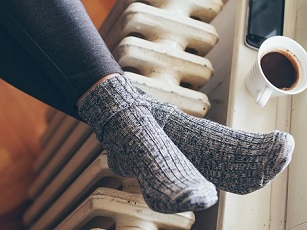
The Radiator BTU Calculator
21 Mar 2022 ・ 4 mins

What is a boiling water tap?
22 Mar 2022 ・ 4 mins

Smart Home Heating Controls: A Guide for Homeowners
04 Mar 2022 ・ 4 mins



